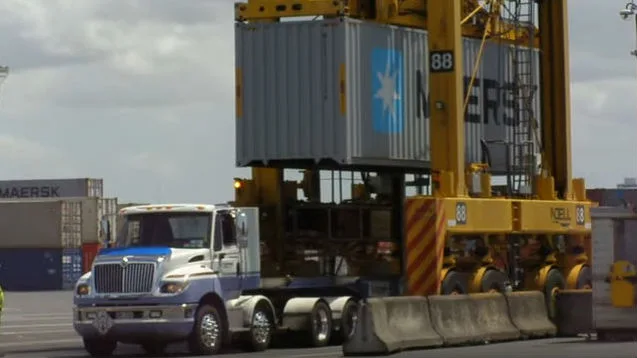Is It Possible to “Uberize” Container Shipping?

“The digitalization of marketplaces and the ‘location-based-real-time’ delivery of services”, which stands out as “Uberization” in many personal services such as transportation, accommodation, obtaining goods and services, is expanding its circle of influence day by day.
One of the important sectors that started to respond to this digital transformation is “Logistics”. Successful StartUps, which stand out all over the world, especially in road logistics, compete with each other to become the “Uber of Logistics”. Local and global investors are also aware of the potential “digital growth” power in logistics. Investments by logistics startups in the bands of hundred million dollars or the news of acquisitions reaching the level of billions of dollars are frequently on the agenda of the global economy.
For example, UPS can buy US logistics startup Coyote for $1.8 billion; Convoy, which was also brought to life with a seed investment of 2.5 million USD, can suddenly gain more than 200 million USD with Unilever’s starting to serve as a digital logistics management platform for all US shipments, or a logistics startup like Delhivery that aims to uberize in the Indian logistics sector attracts the attention of global investor groups. It can receive an establishment investment of 100 million USD.
While “Uberization”, which has settled in the global lexicon as the rising concept of digital transformation, sets the agenda with its ability to penetrate the most capillaries of many sectors, the change that started in road logistics has already started to provide many advantages to logistics companies and truckers. The players of the sector are now in pursuit of increasing their productivity and capturing the new generation market by meeting with each other in the digital environment.
As the circle of Uberization grows and grows, a new topic has started to be brought to the global agenda, and that is “Uberization of Container Transportation”. Container logistics, by its nature, includes much more variables than road logistics. While developing a user-friendly “mobile application and operations management panel (ERP)” containing artificial intelligence (AI) in road logistics requires great effort and investment, “container logistics”, which will include global information flow and port traffic, takes the subject to a higher level. level up.
Increasing sectoral interest and the following global developments have started to signal that the transformation that started with road logistics will quickly be carried to other areas of logistics. For example, TIRPORT, which has successfully applied the Uberization structure to road logistics in our country, brought together Freight Payers and Truckers on a common digital platform, on the other hand, developed a location-based and real-time ERP service for Logistics Companies where they can monitor all their operations. Logistics companies can join operation management screens where they can log in privately, and truckers can join mobile applications where they can easily find cargo with a free subscription.
TIRPORT; It continues its goal of being the Uber of container transportation with the “Container Transportation Model” developed in cooperation with the world container logistics giant Maersk – Damco.
Many logistics connoisseurs around the world started to show the new direction of digital transformation to the logistics world by sharing their opinions on the subject. One of them is Frank Kho, a Market Researcher at ‘Kalmar Strategy and Development’. According to Kho, Uberization has already taken place in personal transportation; in road logistics, great progress has been made and its scope is expanding to partial loads; In container logistics, with an interesting interpretation, Kho predicts that those who follow these developments closely will be the next “uberizers of container logistics”.
According to logistics experts, in the near future, there will be no difference in terms of digital management between transporting an ‘ordinary person’ or a ‘small package’ in an uberized structure and a ’30-ton container’. The question that awaits the logistics world as it progresses to this stage is not “whether it will be possible”, but “When will it happen? and “Who will do it?” clear and waiting for us.